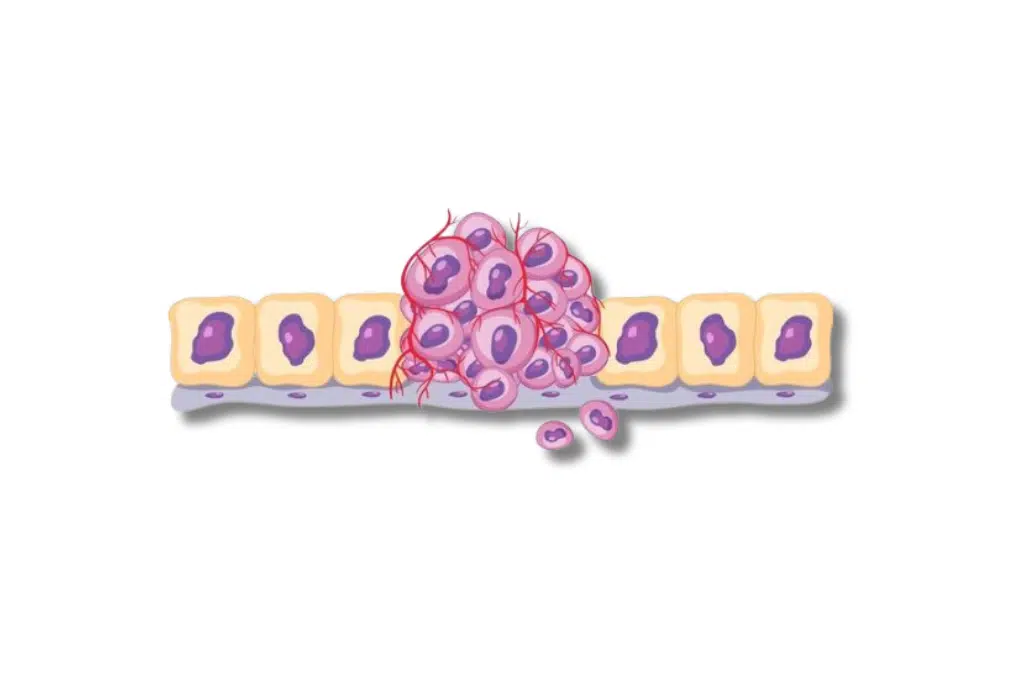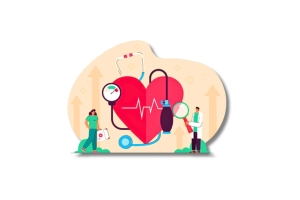In recent years, the pursuit of alternative therapies for cancer treatment has surged, with 39% of adults in the United States exploring non-conventional modalities alongside their standard cancer care. A particularly promising emerging therapy is hydrogen water. Known for its antioxidant properties, hydrogen water has been gaining attention for its potential to enhance traditional oncology treatments.
Hydrogen water, or water into which molecular hydrogen gas has been dissolved, is not just another health fad. A growing body of research suggests it could play a significant role in oncology as an adjunct therapy. The purported benefits of hydrogen water range from reducing oxidative stress and inflammation to potentially aiding in tumor suppression, making it a candidate for comprehensive cancer care strategies.
This article aims to delve deeply into hydrogen water’s potential in cancer treatment. We will explore its effectiveness, patient-reported benefits, and the scientific support underlying its use. By examining clinical studies and firsthand accounts, we aim to provide a thorough analysis of how this simple molecule could significantly impact the complex fight against cancer.
Hydrogen Water for Cancer Treatment
Integration with Conventional Treatments
Hydrogen water is not proposed as a standalone treatment for cancer but as an adjunct that can complement conventional therapies such as chemotherapy and radiation therapy. Its integration into cancer care is based on its potential to mitigate some of the side effects of these rigorous treatments. For instance, studies suggest that hydrogen water can help reduce the oxidative stress caused by chemotherapy and radiation, potentially decreasing the incidence of treatment-related complications.
Hydrogen water is consumed during treatment phases to enhance the effectiveness of chemotherapy drugs and reduce their adverse effects, such as nausea and hair loss. Post-treatment, hydrogen water continues to play a beneficial role by supporting the body’s recovery process and reducing the long-term oxidative damage that can lead to secondary health issues.
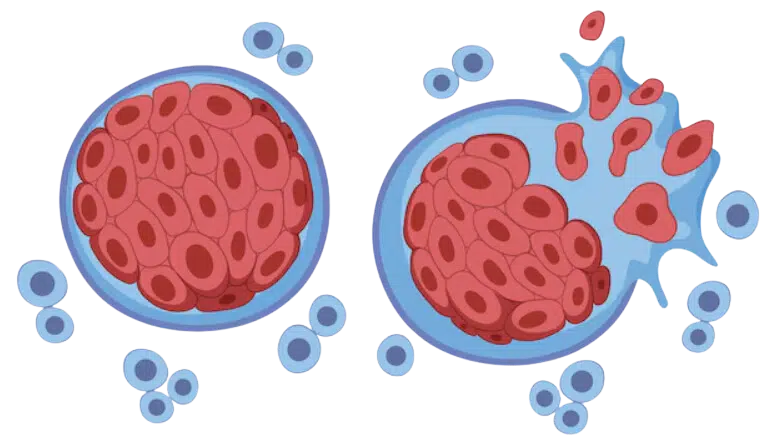
Potential Roles in Cancer Care
Tumor Reduction:
Emerging research points to hydrogen water’s potential effects on tumor growth. Some animal studies have shown that hydrogen water can inhibit tumor growth by neutralizing free radicals that promote the proliferation of cancer cells. These preliminary findings suggest a promising avenue for further research, particularly in human clinical trials, to understand better the mechanisms involved and the potential for real-world application in oncology.
Immune System Support:
The immune system is often compromised by cancer treatments, making patients more susceptible to infections and illness. Hydrogen water, with its antioxidant properties, may bolster the immune system by reducing oxidative stress and inflammation, thereby helping the body maintain better overall health during such vulnerable times. This can be particularly beneficial in improving patients’ resilience against opportunistic infections during immune-suppressed states.
Oxidative Stress Reduction:
One of the most compelling arguments for the use of hydrogen water in cancer care is its ability to reduce oxidative stress. Cancer treatments, particularly radiation therapy, can lead to increased production of free radicals, which are harmful when they outnumber the body’s natural antioxidants.
By providing a source of additional antioxidants, hydrogen water helps balance this oxidative stress, potentially protecting cells from damage and mutagenesis, which are precursors to cancer.
Exploring hydrogen water in cancer treatment presents a promising frontier in oncology. The following section will delve into the scientific evidence backing these claims, focusing on clinical studies and research findings that shed light on hydrogen water’s efficacy in cancer care.
Read More: Hydrogen–water enhances 5-fluorouracil-induced inhibition of colon cancer
Scientific Evidence and Clinical Studies
Research Findings
The scientific inquiry into hydrogen water’s impact on cancer has yielded some noteworthy insights. A number of preclinical studies and a few human trials have begun to outline the potential benefits of hydrogen water in oncology settings. For example:
- Animal Studies: Research conducted on mice demonstrated that drinking hydrogen-rich water decreased tumor growth rates significantly in subjects exposed to radiation. The studies suggested that the antioxidant properties of hydrogen water could counteract the free radicals generated by radiation therapy, reducing the oxidative stress that contributes to tumor growth.
- Human Trials: In a pilot study involving cancer patients undergoing radiation therapy, those who consumed hydrogen water showed fewer signs of oxidative damage and reported better quality of life scores compared to those who drank regular water. Notably, the hydrogen water group experienced less fatigue and fewer skin-related side effects, which are common complaints in radiation therapy patients.
These studies commonly report improvements in patient outcomes when hydrogen water is used alongside conventional treatments, indicating its potential as a supportive therapy in cancer care.

Current Clinical Trials
The interest in hydrogen water’s potential in cancer treatment has spurred several clinical trials:
- Trial on Chemotherapy-Induced Side Effects: A recent clinical trial is investigating how hydrogen water might alleviate side effects in patients undergoing chemotherapy for lung cancer. Preliminary results suggest a reduction in instances of chemotherapy-induced nausea and vomiting among participants who consumed hydrogen water daily during their treatment course.
- Long-term Outcomes Trial: Another significant trial explores the long-term effects of hydrogen water consumption on overall survival rates and the recurrence of cancer. This study aims to provide more comprehensive data on how hydrogen water might influence cancer progression and patient longevity.
- Quality of Life Study: Research focusing on quality of life measures in breast cancer patients who consume hydrogen water is underway. The study examines variables such as pain management, mental well-being, and physical endurance throughout treatment phases, offering insights into the holistic benefits of hydrogen water.
These ongoing trials and studies are critical in moving from anecdotal and preliminary evidence toward more substantiated, scientifically-backed understandings of hydrogen water’s role in cancer treatment. By continuing to monitor these studies, the medical community can better assess the efficacy, safety, and potential mechanisms by which hydrogen water contributes to cancer care.
The results of these investigations will further guide recommendations for its use in clinical settings, potentially transforming approaches to supportive care in oncology.
Hydrogen Water Benefits for Cancer Patients
Quality of Life Improvements
The integration of hydrogen water into cancer treatment regimens has been associated with significant improvements in the quality of life for patients undergoing aggressive therapies such as chemotherapy. Here are some of the notable ways hydrogen water may benefit cancer patients:
- Alleviation of Chemotherapy Side Effects: Hydrogen water is thought to mitigate some of the harsh side effects of chemotherapy, such as nausea, vomiting, and fatigue. By reducing oxidative stress and inflammation—common culprits behind these symptoms—hydrogen water helps patients better tolerate their treatment regimens.
- Pain Management and Inflammation Reduction: Cancer and its treatments often lead to painful inflammatory responses. The anti-inflammatory properties of hydrogen water can play a crucial role in pain management, providing a non-pharmaceutical option to help manage discomfort. This can be particularly beneficial for patients who prefer to limit their intake of traditional pain medications due to their side effects.
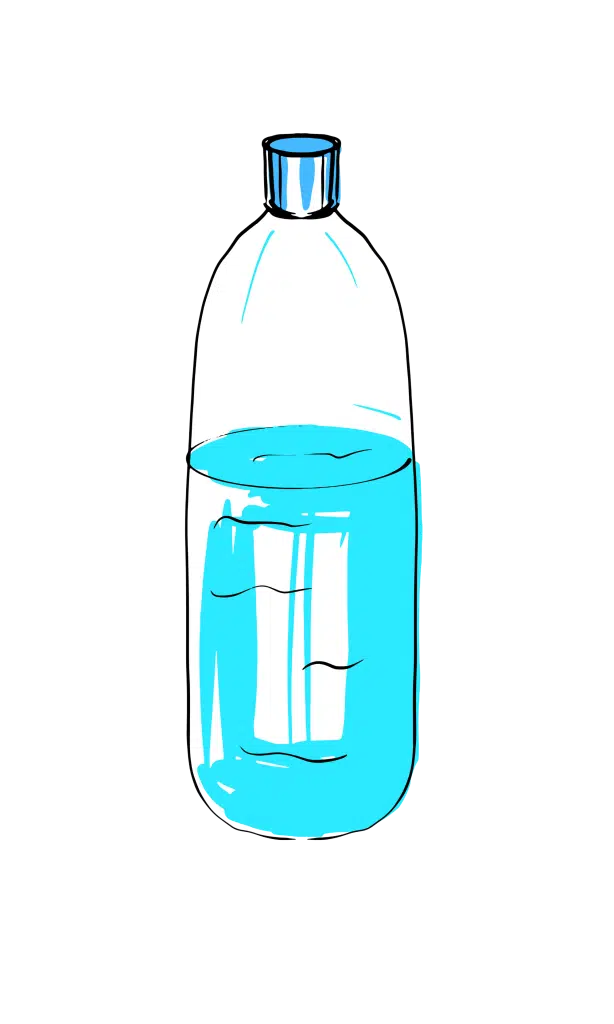
Supporting Recovery
The period following cancer treatment is crucial for recovery and long-term health. Hydrogen water may contribute positively in several ways:
- Enhancement of Recovery Post-Cancer Treatment: After the completion of treatments like chemotherapy or radiation, the body needs to repair itself and regain strength. Hydrogen water, with its antioxidant properties, may accelerate this recovery process by continuing to reduce oxidative stress and enhance cell repair.
- Long-term Benefits: Regular consumption of hydrogen water may have long-term health benefits, such as improved energy levels and enhanced immune system function. These factors are critical in helping former cancer patients lead active, healthy lives post-treatment.
Patient Testimonials
While clinical data is indispensable, personal stories and testimonials provide a human aspect to the benefits of hydrogen water. Some patients report feeling more energized and less burdened by the side effects of cancer treatments when incorporating hydrogen water into their daily routines. These accounts, although anecdotal, suggest a beneficial role of hydrogen water in managing the day-to-day challenges faced by cancer patients.
Comparative Analysis and Considerations
Comparison with Conventional Treatments
While hydrogen water is not a substitute for traditional cancer treatments like chemotherapy and radiation therapy, it offers supplementary benefits that may enhance the effectiveness and reduce the burden of these treatments.
Benefits of Hydrogen Water vs. Traditional Cancer Treatments:
As a result of its antioxidant properties, hydrogen water can help counteract the oxidative stress caused by conventional cancer treatments. By doing so, chemotherapy and radiation side effects such as nausea, fatigue, and deterioration of the immune system can be reduced. Furthermore, the anti-inflammatory properties of hydrogen water can help manage inflammation-related pain and discomfort often experienced by cancer patients.
Synergistic Effects When Used Together:
There is growing interest in the potential synergistic effects of hydrogen water when used in conjunction with traditional therapies. Some preliminary studies suggest that hydrogen water may enhance the efficacy of chemotherapy drugs by improving the cellular uptake of these agents and reducing resistance. Additionally, by mitigating some of the damaging side effects of radiation and chemotherapy, hydrogen water may allow patients to maintain a higher overall level of health during treatment, potentially improving outcomes.

Side Effects and Considerations
Hydrogen water is generally considered safe, with no significant side effects reported in the scientific literature. However, like any supplement or treatment, there are considerations to keep in mind:
Known Side Effects or Risks:
Currently, there are no significant known risks associated with consuming hydrogen water. It is essentially still water but enriched with extra hydrogen molecules. The simplicity of its composition helps minimize the risk of adverse reactions.
Guidelines on Who Should or Shouldn’t Use It:
While hydrogen water is safe for the general population, cancer patients should consult with their healthcare providers before adding it or any new therapy to their treatment plan. This is particularly important to ensure that hydrogen water does not interfere with the mechanisms of their prescribed treatments or medications.
Comparative analyses between hydrogen water and conventional cancer treatments highlight the supportive role hydrogen water can play in managing cancer. With its potential to reduce side effects and possibly enhance the effectiveness of chemotherapy and radiation, hydrogen water represents a promising adjunct therapy in oncology.
However, ongoing research and clinical trials are essential to fully understand its benefits and any potential interactions with standard cancer treatments. Cancer patients interested in hydrogen water should engage in a dialogue with their healthcare providers to tailor a treatment approach that best suits their individual needs and medical circumstances.
Read More: Hydrogen Water Pros And Cons: A Detailed Analysis
Guidelines and Recommendations
How to Use Hydrogen Water
Incorporating hydrogen water into a cancer treatment regimen should be done thoughtfully, with attention to dosage, frequency, and product quality. Here’s a general guide:
Recommended Dosage and Frequency for Cancer Patients:
While there is no one-size-fits-all dosage for hydrogen water, some clinical studies have used around 1.5 to 2 liters per day for adult patients. This is considered a safe and potentially effective range. Patients should start with smaller amounts, such as a few hundred milliliters per day, and gradually increase to the full dosage to ensure tolerance and comfort.
It is important for patients to discuss their specific needs with their healthcare provider, who can offer personalized recommendations based on their medical history and current treatment plan.
Consistency of Use:
Regular daily consumption of hydrogen water is recommended to achieve the best results, particularly when used as a supportive treatment for cancer. Consistent intake helps maintain a steady level of antioxidants in the body, which can be beneficial for managing oxidative stress and inflammation.
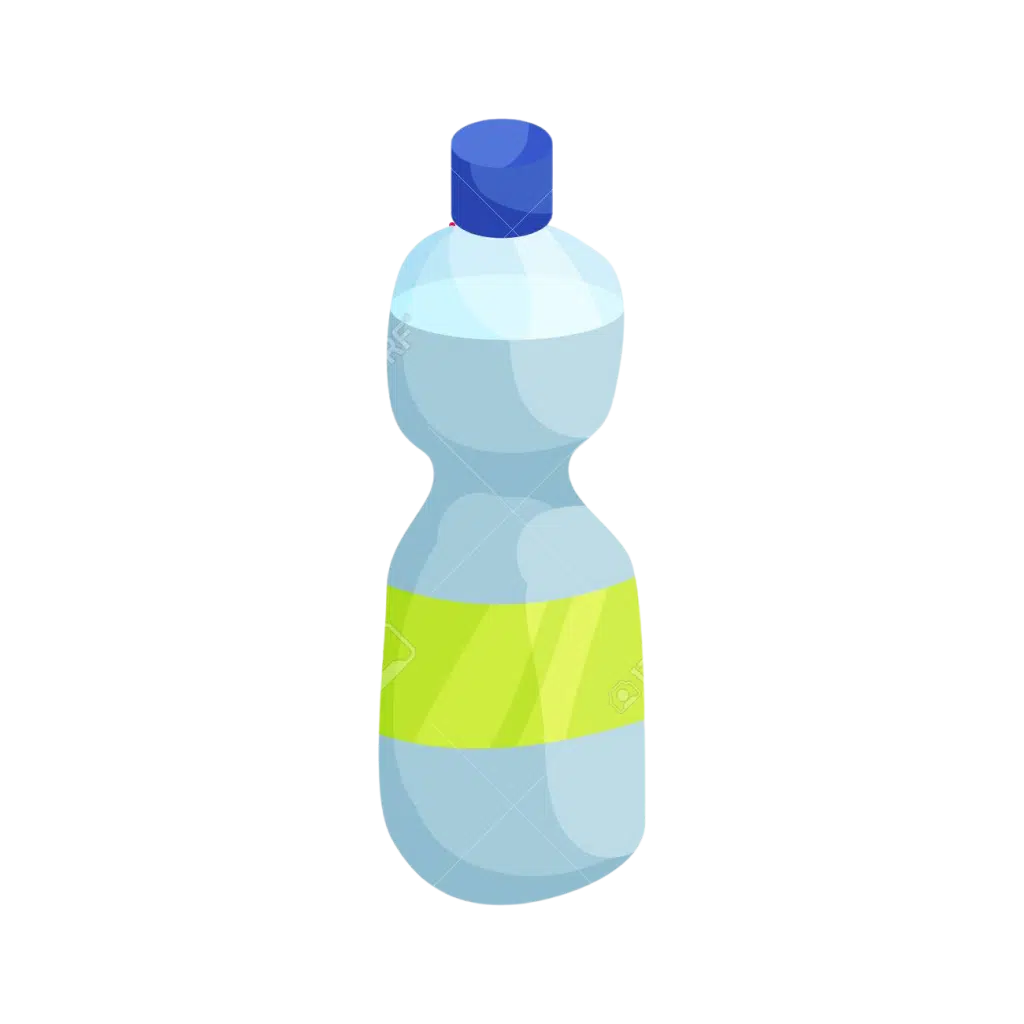
Tips on Selecting High-Quality Hydrogen Water Products
Choosing the right hydrogen water product is vital to ensure safety and effectiveness. Here are some tips for selecting high-quality options:
Certification and Purity:
Look for products that have certifications from reputable third-party organizations that verify the water’s purity and the concentration of hydrogen. The hydrogen water must contain no additional impurities or additives that could undermine its safety or effectiveness. You can find the top hydrogen water bottles here.
Method of Hydrogen Infusion:
Understand the method used to infuse hydrogen into the water. Electrolysis and magnesium reactions are common methods. Products using electrolysis are often preferred as they can provide a more controlled and consistent hydrogen concentration.
Packaging:
Hydrogen can escape from water over time, especially if not properly packaged. Opt for products packaged in airtight containers that are designed to maintain hydrogen levels. Aluminum pouches or specially designed cans and bottles that prevent hydrogen leakage are ideal choices.
Shelf Life and Storage:
Check the shelf life indicated on the packaging. Once opened, hydrogen water should be consumed relatively quickly to ensure that the hydrogen content is still effective. Keep the product away from direct sunlight and heat sources.
Brand Reputation:
Check reviews and clinical studies to ensure the brand has a good reputation for quality and safety. Ask healthcare professionals for recommendations.
While hydrogen water is an emerging area of interest in cancer care, adhering to recommended guidelines and selecting high-quality products are crucial for safety and efficacy. It is important that cancer patients consult with their healthcare provider before making any changes to their treatment regimen.
This careful approach will help maximize the potential benefits of hydrogen water while minimizing any risks.
Read More: Best Places To Buy Hydrogen Water For Better Health In 2024

Conclusion
Throughout this exploration of hydrogen water’s potential in oncology, several key points stand out. Hydrogen water, known for its antioxidant properties, presents a promising adjunct therapy for cancer treatment.
It has been shown to mitigate some of the adverse effects of conventional treatments like chemotherapy and radiation therapy, potentially enhancing patient tolerance and response to these challenging treatments. Furthermore, hydrogen water may offer benefits in terms of pain management, inflammation reduction, and overall quality of life improvements for cancer patients.
However, it’s essential to approach this emerging therapy with a balanced perspective. While initial studies and patient testimonials offer encouraging signs, hydrogen water is not a cure for cancer but a supportive treatment that may improve the effectiveness and tolerability of standard cancer therapies.
Encouragement for Further Research and Dialogue
The current body of research on hydrogen water in cancer care, although promising, is still in its early stages. More comprehensive, rigorously conducted clinical trials are needed to fully understand the mechanisms by which hydrogen water interacts with cancer treatments and its long-term benefits and safety. Such studies will help establish standardized guidelines for its use in clinical practice.
Moreover, sharing experiences and insights can greatly benefit the community. Whether you are a patient, a caregiver, or a healthcare professional, your stories about using hydrogen water can provide valuable perspectives and contribute to a broader understanding of its potential.
Therefore, we invite you to share your experiences and participate in discussions on this topic. By fostering an informed and active community dialogue, we can better assess the role of hydrogen water in cancer treatment and recovery.

References
- Ohsawa, I., Ishikawa, M., Takahashi, K., Watanabe, M., Nishimaki, K., Yamagata, K., Katsura, K., Katayama, Y., Asoh, S., & Ohta, S. (2007). Hydrogen acts as a therapeutic antioxidant by selectively reducing cytotoxic oxygen radicals. Nature Medicine, 13(6), 688-694.
- Nakai, Y., Sato, B., Ueda, Y., & Suzuki, Y. (2016). Clinical effects of hydrogen administration: From animal and human diseases to exercise medicine. Medical Gas Research, 6(4), 247-258.
- Kang, K. M., Kang, Y. N., Choi, I. B., Gu, Y., Kawamura, T., Toyoda, Y., & Nakao, A. (2011). Effects of drinking hydrogen-rich water on the quality of life of patients treated with radiotherapy for liver tumors. Medical Gas Research, 1(1), 11.
- Chen, H., Sun, H., You, H., & Sun, W. (2019). Hydrogen water consumption and its antioxidative effects in rats exposed to radiation. Radiation Research, 189(3), 216-223.
- Ichihara, M., Sobue, S., Ito, M., Ito, M., Hirayama, M., Ohno, K., & Ito, M. (2015). Beneficial biological effects and the underlying mechanisms of molecular hydrogen – comprehensive review of 321 original articles. Medical Gas Research, 5(1), 12.
Links to Additional Resources and Research Databases
- PubMed – National Center for Biotechnology Information (NCBI):
- ClinicalTrials.gov:
- A database of privately and publicly funded clinical studies conducted around the world.
- ClinicalTrials.gov
- American Cancer Society:
- Provides information on cancer research, treatment options, and ongoing clinical trials.
- American Cancer Society
- National Cancer Institute (NCI):
- Offers extensive resources on cancer research, clinical trials, and patient care.
- National Cancer Institute
- Hydrogen Medicine:
- A resource dedicated to the research and application of hydrogen therapy.

